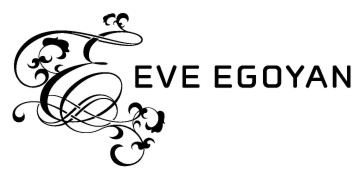by Uncle Dave Lewis
Canadian pianist Eve Egoyan is an advocate for contemporary music, but that should not automatically put her into a certain camp in the minds of many listeners, as the music she chooses to interpret, and the programs in which they are combined, are of a particular character that suits her unique temperament. In Weave, Egoyan‘s second album for her own Eve label, the ghost of Erik Satie stands silently slightly outside the perimeter of the music played here, informing the proceedings by virtue of his pioneering exegesis of stasis and repetition, but not interrupting them. All of these works were commissioned by Egoyan and play to her virtuosic strengths, although Egoyan‘s virtuosic abilities are always at the command of a higher sense of musical purpose and depth. Not many virtuoso pianists are good at playing Satie, as his music requires patience and concentration in executing things that are technically rather simple. Although there is no Satie on Weave, one gets the impression from the way she handles his influence as echoed through the voices of others that Egoyan would be a really good Satie player.
Toronto-based composer and jazz pianist Martin Arnold‘s Herl is the longest work on the disc and requires exactly these qualities; for the first two-thirds of the piece the fragmented figures of a birdsong-like melody is set to a disarmingly simple, but diffracted series of block chords that sound at irregular intervals. The last third is devoted to a series of chords that sound out as if in straight quarter notes and the ending is louder than anything in the piece proper. As uncomplicated and direct as this plan sounds, it is Egoyan who gives the piece its heft and weft; Arnold has supplied the dots and Egoyan connects them. It is a very pleasant and reflective, yet challenging experience and one quite unlike what one will be used to in classical piano literature, as if Satie meets Bill Evans on the way to visiting Cornelius Cardew. James Tenney‘s To Weave is exactly that — a single, long strand of thread that evolves into a widely spaced, richly harmonic texture. Jo Kondo‘s Metaphonesis is, in a way, the most conventional of the pieces on Weave, a little reminiscent of John Cage‘s Metamorphosis. However, the Michael Finnissy piece that follows it, Erik Satie, like anyone else, is anything but conventional, a nonlinear collage of gestures and sensations that finally plays the virtuosic card, but only in short stretches — stubborn figures are answered by brittle, pregnant silences.
Finnissy comments about Egoyan‘s playing utilizing such words as “alchemy” and “fearlessness”; add to that the words “pleasant” and “challenging” from earlier in this article and one gets a sense of the paradoxical world Egoyan‘s Weave belongs to. Given its very basis in “difficult,” contemporary styles, one would normally prepare to respect and grow with this music, rather than enjoy it with the natural sense of immediacy found with easier music. However, one enjoys it nonetheless, with the same degree of immediacy, and yet one does grow through listening — such is the power of Egoyan‘s advocacy and the level of her artistry.
